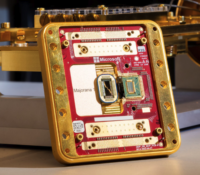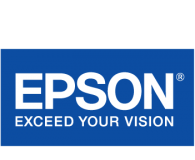Microsoft has announced the launch of Majorana 1, the world’s first quantum chip featuring a revolutionary Topological Core architecture. This innovation is expected to enable quantum computers to solve significant industrial-scale challenges within years rather than decades.
The chip utilizes the world’s first topoconductor, a groundbreaking material designed to observe and manipulate Majorana particles. This development leads to more reliable and scalable qubits, which serve as the fundamental components of quantum computers.
Just as semiconductors paved the way for today’s smartphones, computers, and electronics, topoconductors and the new chip they support provide a pathway to creating quantum systems that can scale up to one million qubits. Microsoft believes this advancement will address the most complex industrial and societal issues.
Chetan Nayak, a technical fellow at Microsoft, explained, “We took a step back and said ‘OK, let’s invent the transistor for the quantum age. What properties does it need to have?And that’s really how we got here – it’s the particular combination, the quality and the important details in our new materials stack that have enabled a new kind of qubit and ultimately our entire architecture.”
The architecture developed for the Majorana 1 processor allows the integration of a million qubits onto a single chip that fits comfortably in the palm of your hand. Achieving this milestone is crucial for quantum computers to provide transformative real-world solutions, such as breaking down microplastics into harmless byproducts or creating self-healing materials for construction, manufacturing, or healthcare. Current computers together cannot accomplish what a one-million-qubit quantum computer will achieve.
Nayak emphasized, “Whatever you’re doing in the quantum space needs to have a path to a million qubits. If it doesn’t, you’re going to hit a wall before you get to the scale at which you can solve the really important problems that motivate us,” He added, “We have actually devised a pathway to a million.”

Chetan Nayak, Microsoft technical fellow. Photo by John Brecher for Microsoft.
Topoconductors, or topological superconductors, represent a unique class of materials that can create a new state of matter—distinct from solids, liquids, or gases—known as a topological state. This capability allows for the production of a more stable qubit that is fast, compact, and digitally controllable, without the compromises associated with existing alternatives. A recent paper published in Nature details how Microsoft researchers successfully created and accurately measured the exotic quantum properties of the topological qubit, a crucial advancement for practical computing.
Rethinking Quantum Computing at Scale
The realm of quantum computing operates under the principles of quantum mechanics, which differ from the classical laws of physics that govern our observable world. In this context, particles are referred to as qubits, or quantum bits, similar to the bits (ones and zeros) used in conventional computers.
Qubits are delicate and extremely prone to disturbances and errors from their surrounding environment, leading to their degradation and the loss of information. Additionally, their state can be influenced by measurement, which is problematic since measuring is crucial for computation. A significant challenge lies in creating a qubit that can be accurately measured and controlled while simultaneously safeguarding against the environmental noise that can corrupt them.
Qubits can be produced through various methods, each with its own set of pros and cons. Almost two decades ago, Microsoft opted for a distinctive strategy: the development of topological qubits. This approach aimed to yield more stable qubits that would require less error correction, thereby providing advantages in speed, size, and controllability. While this method presented a steep learning curve and demanded unprecedented scientific and engineering advancements, it also represented the most promising avenue for creating scalable and controllable qubits capable of performing commercially valuable tasks.
















